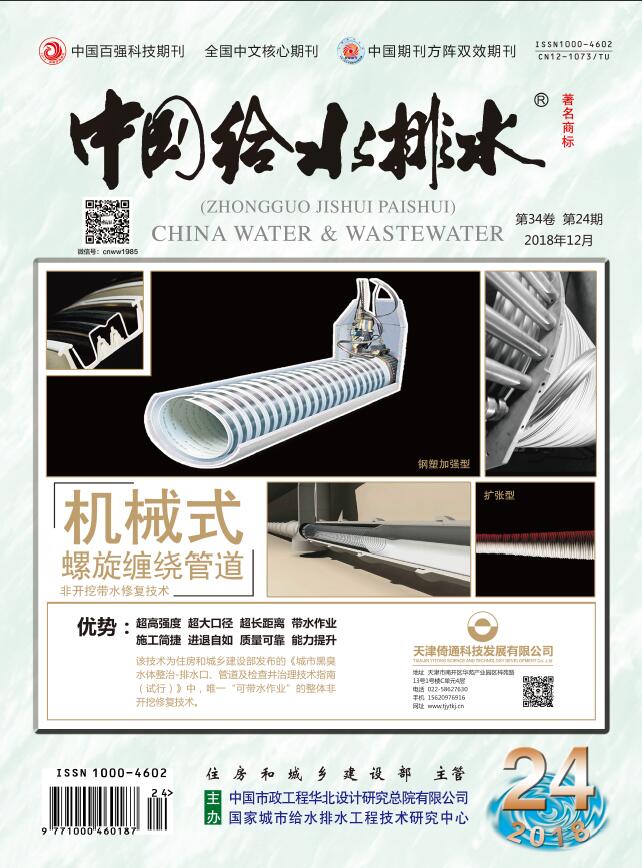ZHANG Han-zhong,HAN Mei,ZHAO Zhi-wei,et al.Effect of Carbon Age on Removal of Organics in Water from South-to-North Water Diversion Project by Activated Carbon Process[J].China Water & Wastewater,2021,37(3 3):32-37.
Effect of Carbon Age on Removal of Organics in Water from South-to-North Water Diversion Project by Activated Carbon Process
China Water & Wastewater[ISSN:1000-4062/CN:12-1073/TU]
volume:
第37卷
Number:
3 3
Page:
32-37
Column:
Date of publication:
2021-02-01
- Keywords:
- activated carbon; carbon age; South-to-North Water Diversion; organics; biofilm
- Abstract:
- Effects of biological activated carbon (BAC) age on removal of organics in water from South-to-North Water Diversion Project were compared. The experiment was continuously carried out in a pilot base of a water supply plant in the north for one year, and three kinds of activated carbon were used in the BAC unit, namely new carbon, carbons with age of 2.5-3.5 years and 4.5-5.5 years. Organics removal was mainly completed by biological action in stable activated carbon filter columns during long-term operation.There was little difference between the removal efficiencies of organics of old activated carbon filter columns with age of 2.5-3.5 years and 4.5-5.5 years, but the two had a better removal efficiency of trichloromethane than that of the new carbon filters with unstable attached biofilm. High throughput sequencing analysis found that Sphingomonas, DSSF69, etc were the dominant functional bacteria, and diversity of the old-aged carbon was more abundant and the biofilm system was more stable. In addition, the removal efficiency of organics was related to the pollution degree of the organics in the influent. When the concentration of dissolved organics in the water was low, the activated carbon filter column would appear the phenomenon of adsorbed material inverse diffusion.Therefore, when the water quality was good, organics removal efficiency of the activated carbon filter would be weakened.
Last Update:
2021-02-01

